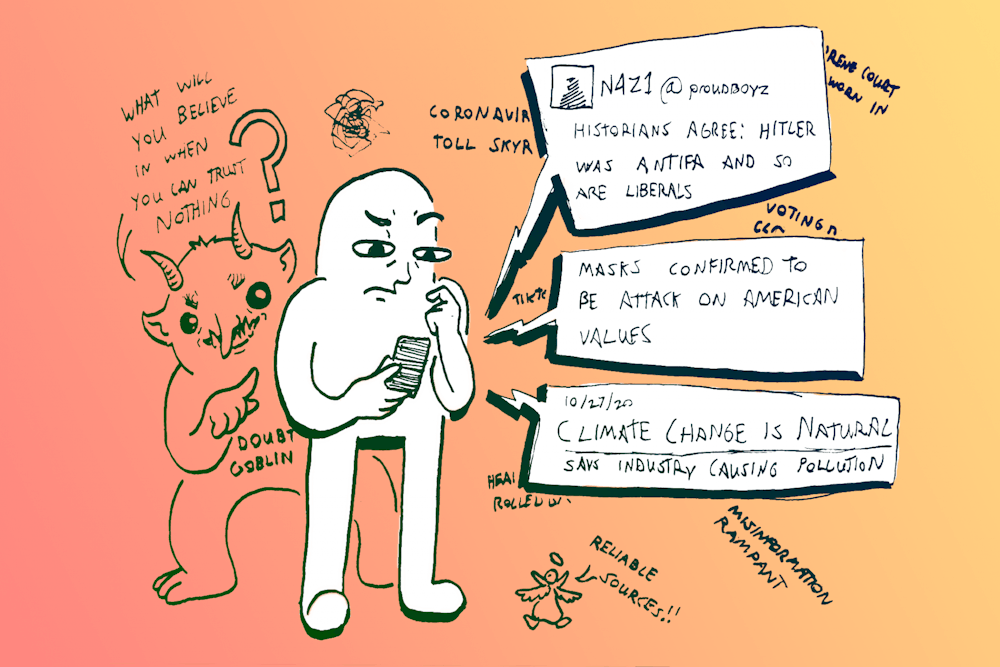Attention-grabbing headlines and outrageous screenshots can spread like wildfire on social media. People bewildered or amazed by these claims may retweet, like or repost them so their followers can see them too. This could cause the same effect to these followers, until the posts are spread out even more. But what if these claims aren’t true?
About half of Americans say they experience difficulty in determining whether information is true, according to Newswise. A similar percentage of adults says they “often” or “sometimes” get their news from social media, according to a Pew Research Center report.
In my experience, it’s not hard to create a fake social media post. I just turned one in for a grade in a digital design class. While mine wasn’t perfect, anyone with a few hours and some YouTube videos could make false information convincing enough to fool unsuspecting viewers.
I’ve seen TikTok users post tweets with false information without alerting their viewers the tweet isn’t true. I’ve caught myself completely believing the source until I check the comments to see people disproving it. But even random commenters aren’t always reliable. Without checking professional sources, I could get swept up in a misinformed idea.
More than half of American adults get their news from Facebook, a site known for its issues with misinformation, according to NewScientist. This points to a serious problem with a mass audience being subjected to false claims or posts regularly.
The combination of news and entertainment one gets from scrolling through social media makes it harder to focus on the reliability of information consumed. Unlike content that is clearly marked and separated, the blend of different types of information catches viewers off guard.
Especially with the upcoming election, finding trustworthy and accurate information is crucial to making well-informed and well-rounded decisions on who to vote for and how this aligns with personal interest.
The Washington Post recommends avoiding social media altogether as Election Day nears. Instead, it advises finding a few reputable media outlets to track and keep updated with on political coverage.
But what about other news? Apps such as Twitter make it easy and tempting to use as a sole source of news updates. While social media is not necessarily a bad method for obtaining the latest details on a story, it must be used with caution.
Taking the time to fact check sources may seem exhausting, but it is worthwhile. Anything that grabs your attention with an insane headline or caption should be carefully considered before taken as fact.
Random social media users may try to gain traction by posting what they think will create a stir on their platform. Consider who the original poster has in their best interest.
Research the outlets and individuals you view and follow. Use organizations like MediaWise to improve knowledge on fact checking techniques and for links to resources on how to be more media-savvy.
If you still want to follow media outlets you know are somewhat biased, be cognizant of this. The way they present information could be an attempt to sway your opinion. Even if their facts are correct, the framing of the information can be misleading.
Do your own part by not reposting or sharing what you know is not true. What might clearly be a satirical piece to you might not be to someone else.
Media literacy and awareness are the tradeoffs we must practice when we have the expanse of the internet at our fingertips. Don’t let random people online fill your mind with what they want you to believe, and not what you need to know.






